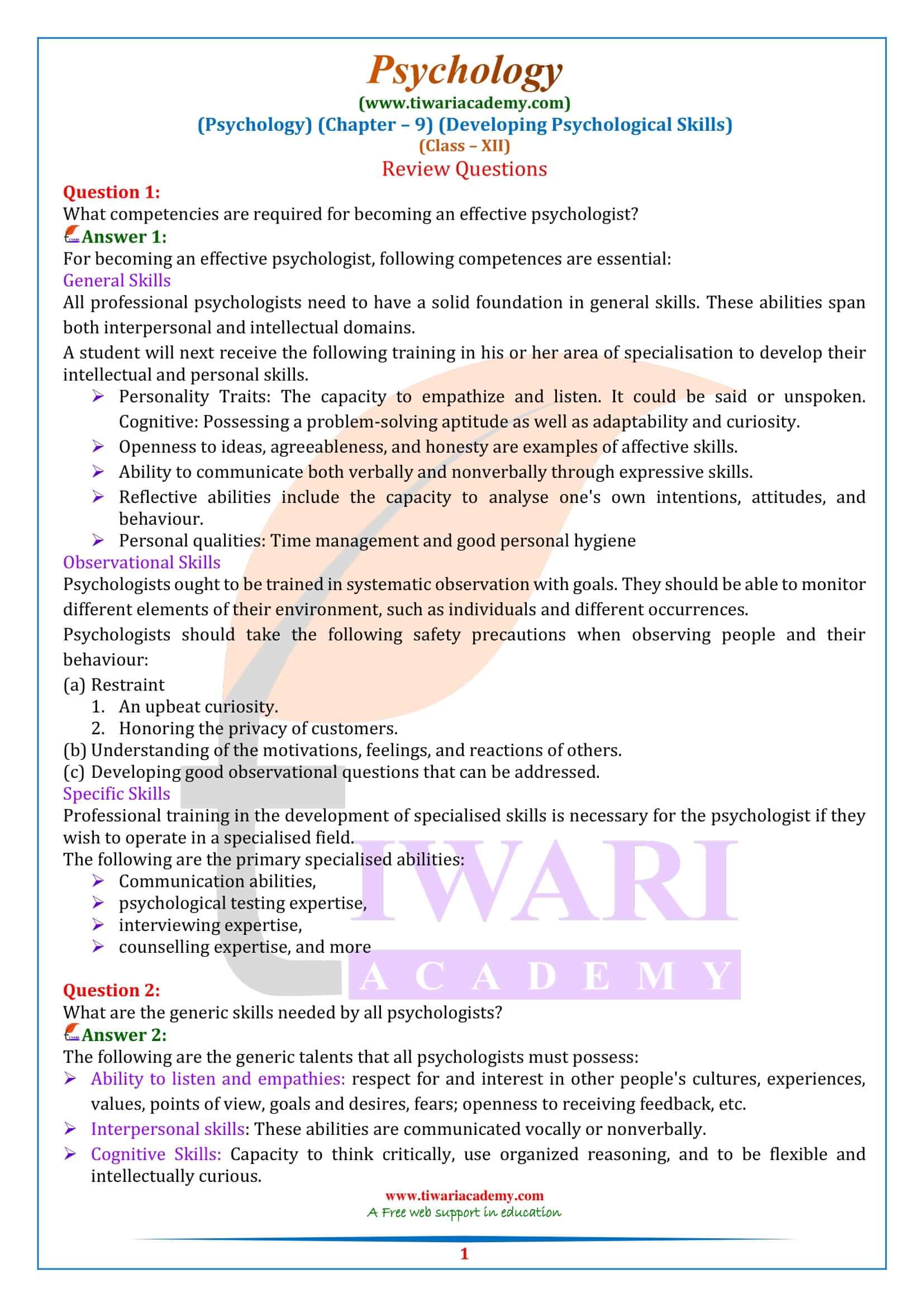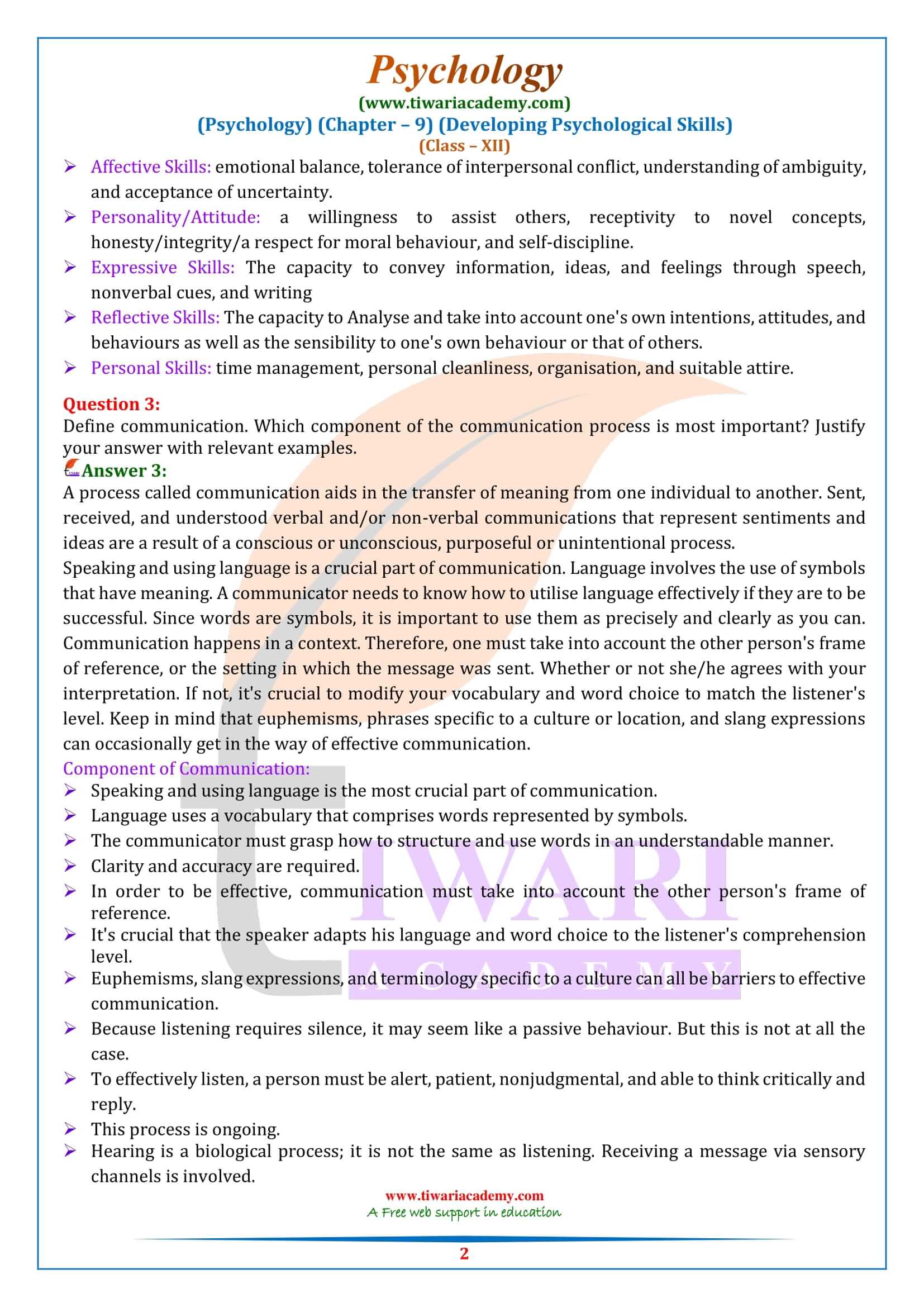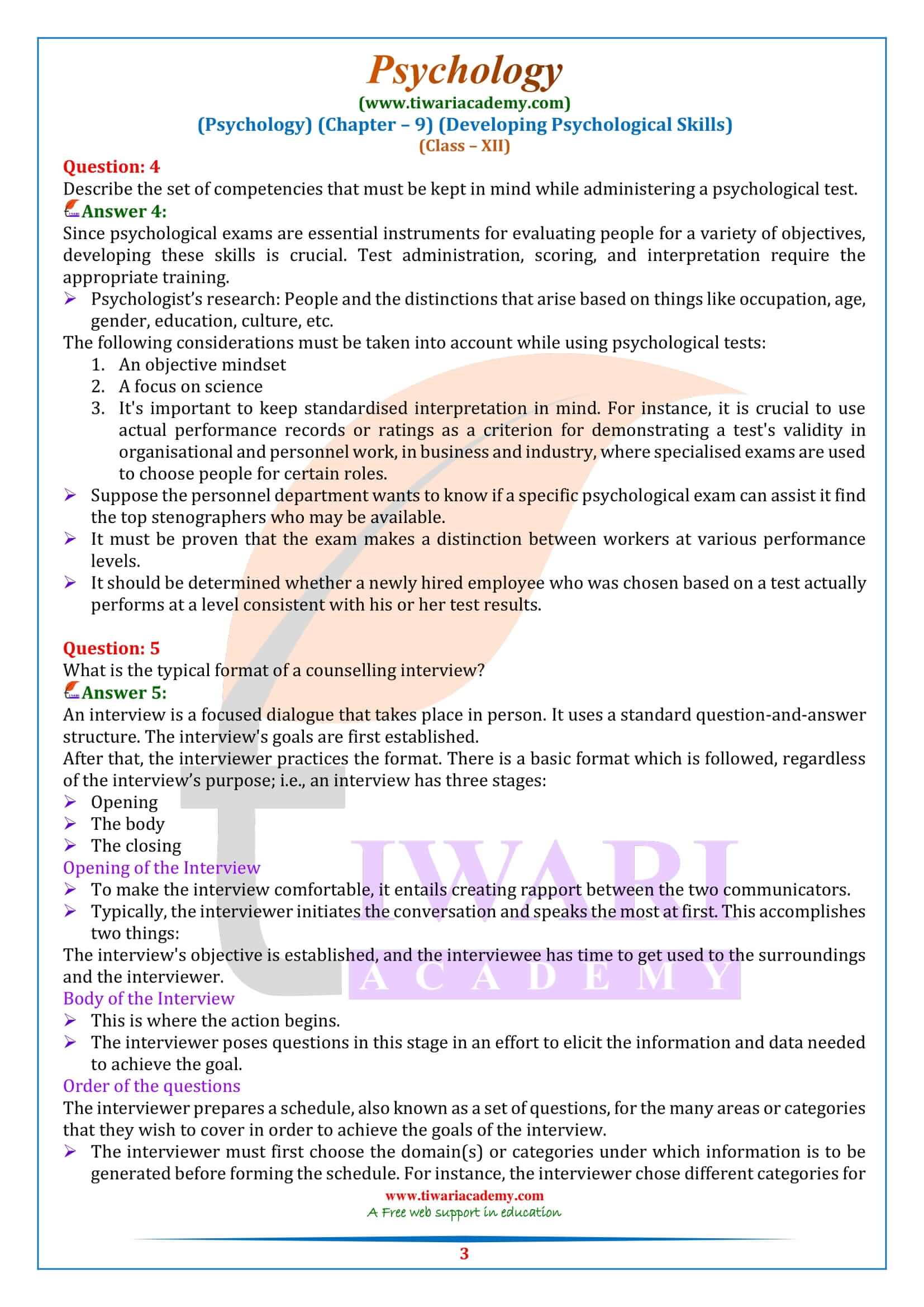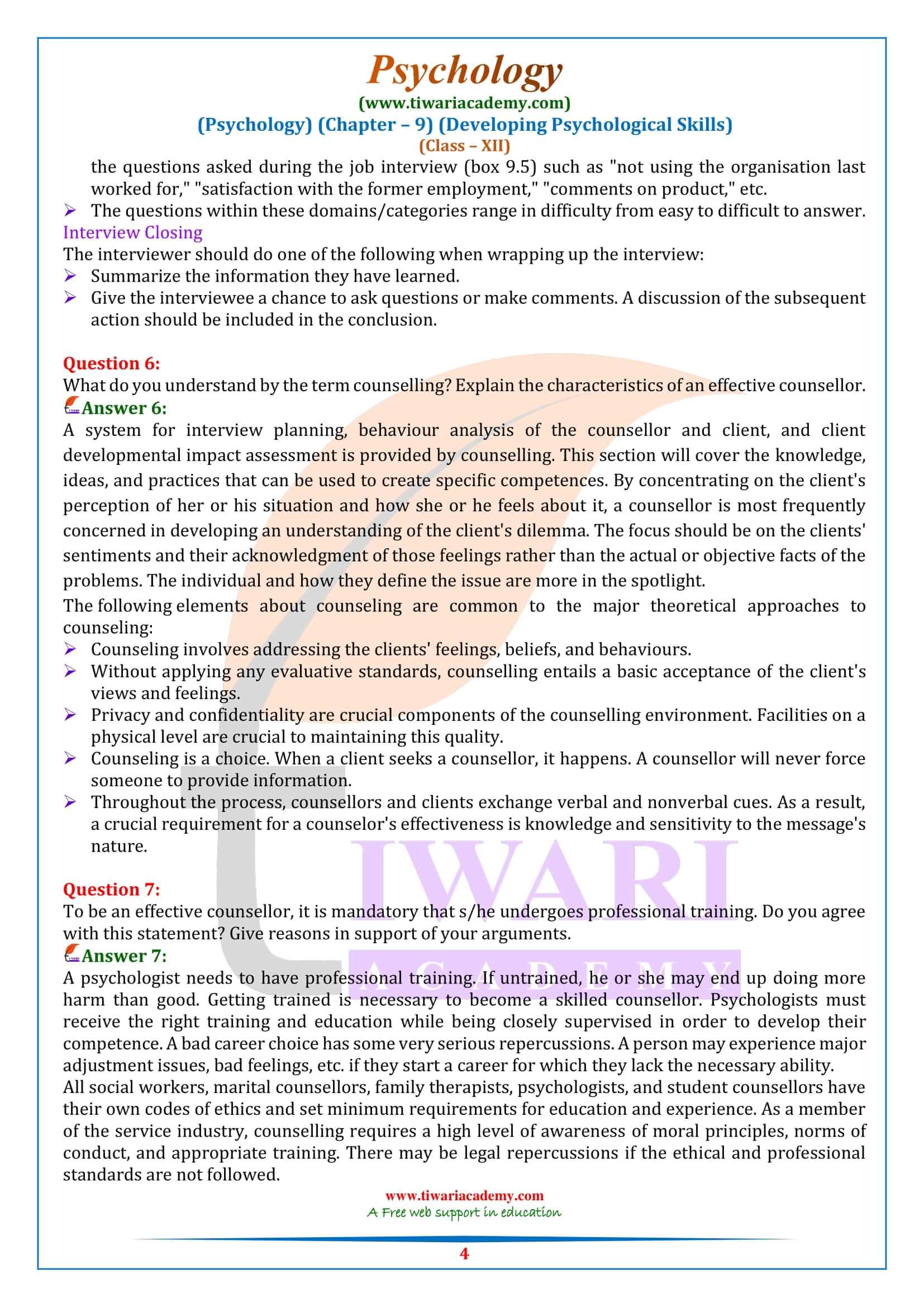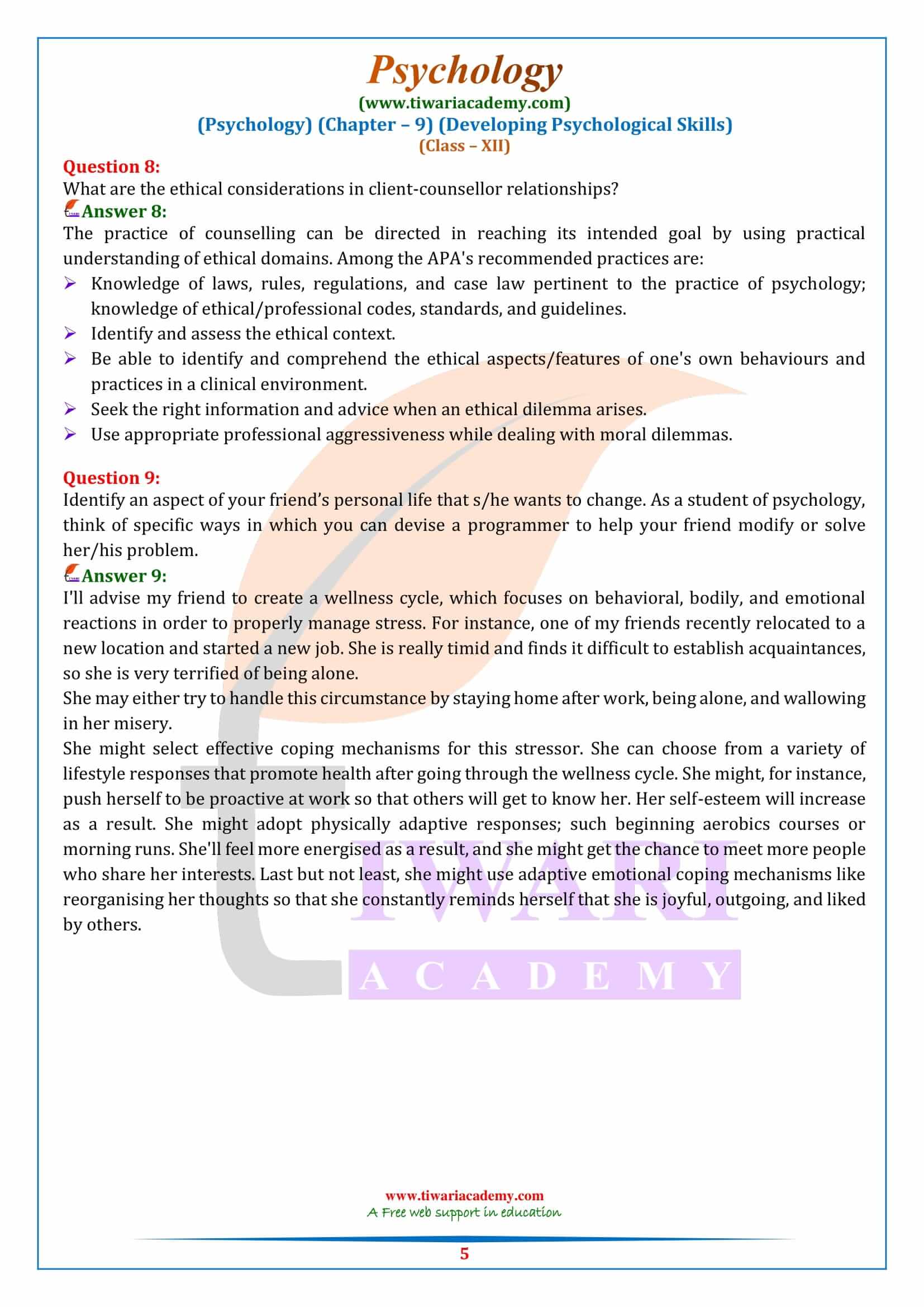NCERT Solutions for Class 12 Psychology Chapter 9 Developing Psychological Skills updated for new academic session 2025-26. Get here class 12 Psychology chapter 9 MCQ, Important Questions, extra questions in English Medium with answers and explanation.
NCERT Solutions for Class 12 Psychology Chapter 9
Class 12 Psychology Chapter 9 Developing Psychological Skills Question Answers
What are the generic skills needed by all psychologists?
The following are the generic talents that all psychologists must possess:
Ability to listen and empathies: respect for and interest in other people’s cultures, experiences, values, points of view, goals and desires, fears; openness to receiving feedback, etc.
Interpersonal skills: These abilities are communicated vocally or nonverbally.
Cognitive Skills: Capacity to think critically, use organized reasoning, and to be flexible and intellectually curious.
Affective Skills: emotional balance, tolerance of interpersonal conflict, understanding of ambiguity, and acceptance of uncertainty.
Personality/Attitude: a willingness to assist others, receptivity to novel concepts, honesty/integrity/a respect for moral behaviour, and self-discipline.
Expressive Skills: The capacity to convey information, ideas, and feelings through speech, nonverbal cues, and writing
Reflective Skills: The capacity to Analyse and take into account one’s own intentions, attitudes, and behaviours as well as the sensibility to one’s own behaviour or that of others.
Personal Skills: time management, personal cleanliness, organisation, and suitable attire.
What do you understand by the term counselling? Explain the characteristics of an effective counsellor.
A system for interview planning, behaviour analysis of the counsellor and client, and client developmental impact assessment is provided by counselling. This section will cover the knowledge, ideas, and practices that can be used to create specific competences. By concentrating on the client’s perception of her or his situation and how she or he feels about it, a counsellor is most frequently concerned in developing an understanding of the client’s dilemma. The focus should be on the clients’ sentiments and their acknowledgment of those feelings rather than the actual or objective facts of the problems. The individual and how they define the issue are more in the spotlight.
The following elements about counseling are common to the major theoretical approaches to counseling:
- Counseling involves addressing the clients’ feelings, beliefs, and behaviours.
- Without applying any evaluative standards, counselling entails a basic acceptance of the client’s views and feelings.
- Privacy and confidentiality are crucial components of the counselling environment. Facilities on a physical level are crucial to maintaining this quality.
- Counseling is a choice. When a client seeks a counsellor, it happens. A counsellor will never force someone to provide information.
- Throughout the process, counsellors and clients exchange verbal and nonverbal cues. As a result, a crucial requirement for a counselor’s effectiveness is knowledge and sensitivity to the message’s nature.
To be an effective counsellor, it is mandatory that s/he undergoes professional training. Do you agree with this statement? Give reasons in support of your arguments.
A psychologist needs to have professional training. If untrained, he or she may end up doing more harm than good. Getting trained is necessary to become a skilled counsellor. Psychologists must receive the right training and education while being closely supervised in order to develop their competence. A bad career choice has some very serious repercussions. A person may experience major adjustment issues, bad feelings, etc. if they start a career for which they lack the necessary ability.
All social workers, marital counsellors, family therapists, psychologists, and student counsellors have their own codes of ethics and set minimum requirements for education and experience. As a member of the service industry, counselling requires a high level of awareness of moral principles, norms of conduct, and appropriate training. There may be legal repercussions if the ethical and professional standards are not followed.
What are the ethical considerations in client-counsellor relationships?
The practice of counselling can be directed in reaching its intended goal by using practical understanding of ethical domains. Among the APA’s recommended practices are:
- Knowledge of laws, rules, regulations, and case law pertinent to the practice of psychology; knowledge of ethical/professional codes, standards, and guidelines.
- Identify and assess the ethical context.
- Be able to identify and comprehend the ethical aspects/features of one’s own behaviours and practices in a clinical environment.
- Seek the right information and advice when an ethical dilemma arises.
- Use appropriate professional aggressiveness while dealing with moral dilemmas.
